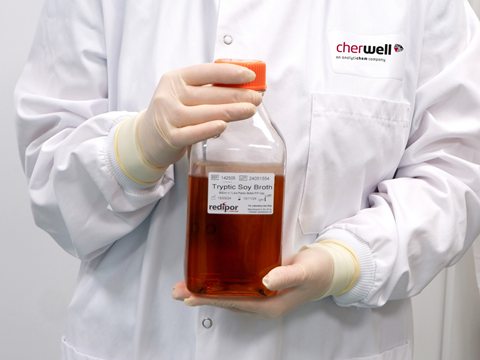
Cherwell is taking steps to help pharmaceutical companies meet their sustainability goals with terminally sterilized plastic bottles designed to replace glass alternatives, lower packaging weight, and reduce carbon emissions.
Apparently, glass requires approximately 900°C of heat to melt and recycle. Switching to plastic is thought to cut down on both energy and time, as it only requires 200°C of heat to undertake the same processes.
Cherwell observes that aseptic manufacturing environments are noticing the ‘carbon expense’ of glass and transitioning into plastic alternatives. Some global regions, such as Scandinavia, reportedly consider this transition a step towards the United Nations 17 Sustainability Development Goals.
As such, the new Redipor plastic bottled products range is made from materials said to meet USP Class VI requirements, facilitating sterility testing applications. The bottles are available in 250ml and 1L sizes with a wide-mouth format and square base; this is thought to enhance their strength, unlock high shatter resistance, and minimize waste from breakage.
Their tougher constitution and lower weight also claim to lower transport costs and make the bottles easier to handle, pack, and store.
“A consumable’s overall carbon footprint is influenced by many factors, such as the material used, manufacturing processes, weight, transportation, recycling, reusability, and end-of-life disposal,” explained Wan Li Low, microbiology product specialist at Cherwell. “So, although it’s often thought of as a sustainable material due to its recyclability, glass is in fact carbon expensive to manufacture, distribute, and recycle.
“Whereas, when considering its entire lifecycle from production to recycling, plastic actually presents a lower carbon footprint, which has been shown by recent studies.”
Cherwell emphasizes that its prepared bottled media products are manufactured and terminally sterilized within its cleanroom facility, where they are subject to ‘stringent’ quality checks and QC-certified. A video interview on the company’s website explains the product development of a Redipor plastic bottle in light of a customer request from a Danish pharmaceutical company.
SIG previously sought to replace plastic bottles with an on-the-go aseptic carton pack designed for recyclability and downsizing. According to the company, the solution is made of FSC-certified paperboard and produced using 100% renewable electricity.
SGD Pharma also geared a range of lightweight glass bottles towards the cosmetics and beauty sectors. As well as lowering carbon footprint, the bottles intend to harness the functionality and aesthetic appeal of glass packaging.
If you liked this story, you might also enjoy:
How are the top brands progressing on packaging sustainability?
The ultimate guide to global plastic sustainability regulation














No comments yet